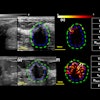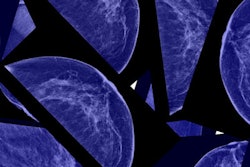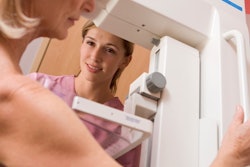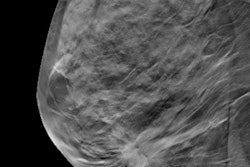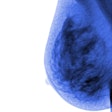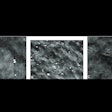Dear AuntMinnie Member,
This week's top story was undoubtedly the turmoil within the antimammography-screening movement, as two of its most powerful figures left high-profile positions.
Dr. Peter Gøtzsche was ejected from the governing board of the Cochrane (formerly the Cochrane Collaboration), setting off a civil war between proponents of evidence-based medicine within the Cochrane organization and its individual centers. At almost the same time, Dr. H. Gilbert Welch resigned from Dartmouth College over allegations of plagiarism in a 2016 paper on overdiagnosis and breast screening. Our article on the developments was the top story of the week -- catch up by clicking here.
Supporters of breast screening can be excused if they are experiencing a bit of schadenfreude. Both Welch and Gøtzsche -- especially Gøtzsche -- have been thorns in their sides for years. Of the eight large randomized controlled trials on screening mammography, Gøtzsche excoriated the statistical methods used in the six that supported population-based breast screening, while upholding as gospel the two that found mammography to have no effect. He even wrote a book published in 2012, Mammography Screening: Truth, Lies and Controversy, that purported to expose breast screening as a "scandal of monstrous proportions."
While not as extreme, Welch consistently tried to poke holes in mammography's aura with a series of papers that focused on the alleged "harms" of breast screening, such as overdiagnosis and false positives. Welch's work alleged that nearly one-third of breast cancers detected by mammography screening were simply cases of overdiagnosis, and he and others proposed that the well-documented decline in breast cancer mortality was entirely due to better treatment, not screening.
As fallout from this week's events continues, the question remains: Is there a connection? At first glance, no. While contemporaneous, they happened to different people in different places for different reasons.
But as the zealots of evidence-based medicine in the Cochrane fiasco hurl charges of scientific bias and conflict of interest at each other, one can't help but feel like one is witnessing a holy war of belief systems in which it's impossible for either side to empirically prove the other wrong. And religious fervor is a poor underpinning for scientific research.
PACS and AI integration
On a lighter note, Dr. Eliot Siegel was back again this week, sharing his thoughts on artificial intelligence (AI) and PACS, this time at the New York Medical Imaging Informatics Symposium.
Dr. Siegel discussed how AI will affect PACS software as radiologists look for ways to access the power of deep learning without disrupting their workflow. The PACS applications of the future may look very different than they do now as a result of AI, he believes. Revisit this important talk by clicking here.
FFR-CT from ISCT
Another top story for the week came from the International Society for Computed Tomography (ISCT) meeting in San Diego, where researchers from Stanford University discussed their use of AI to enhance fractional flow reserve CT (FFR-CT) for determining the degree of stenosis in an artery. Learn more by clicking here.



